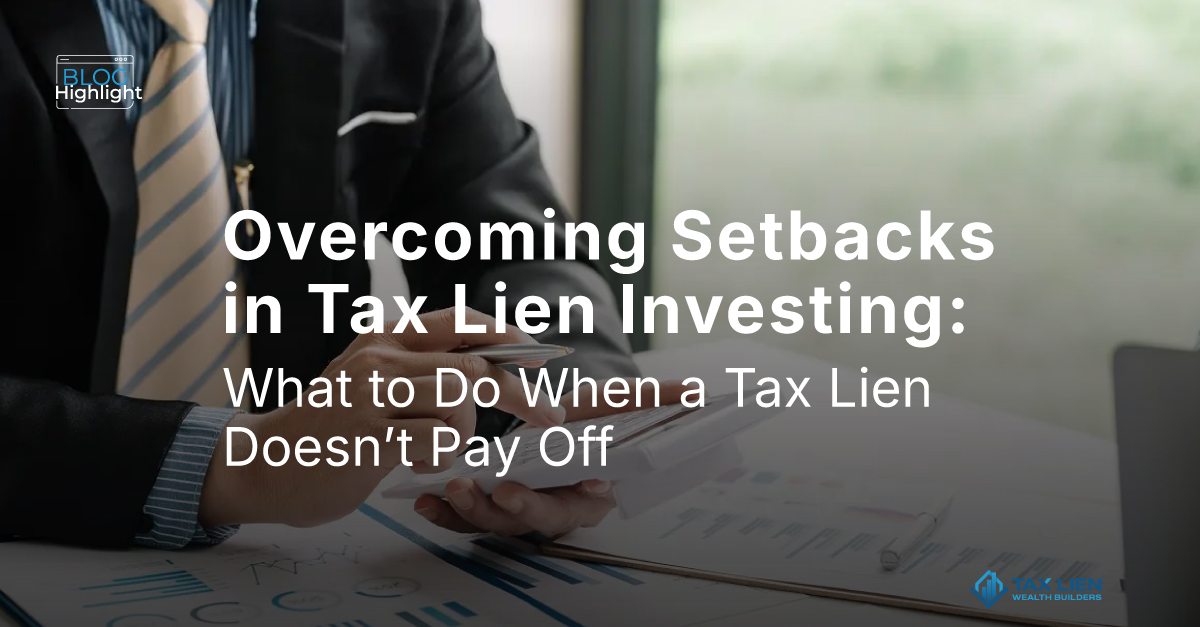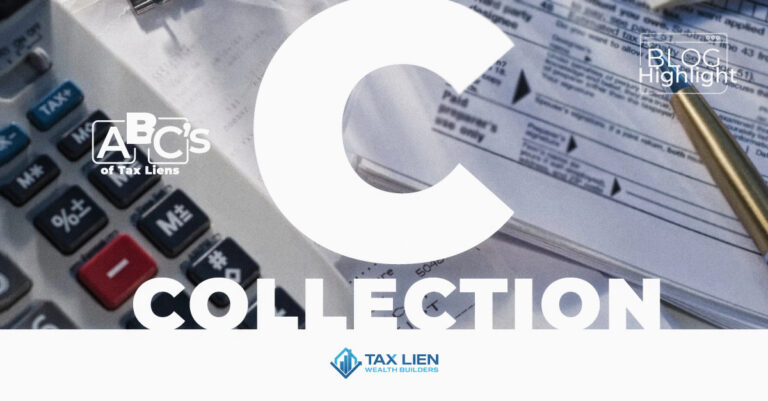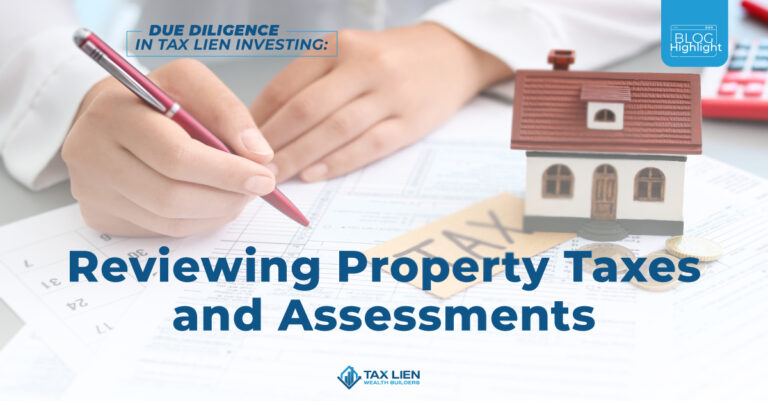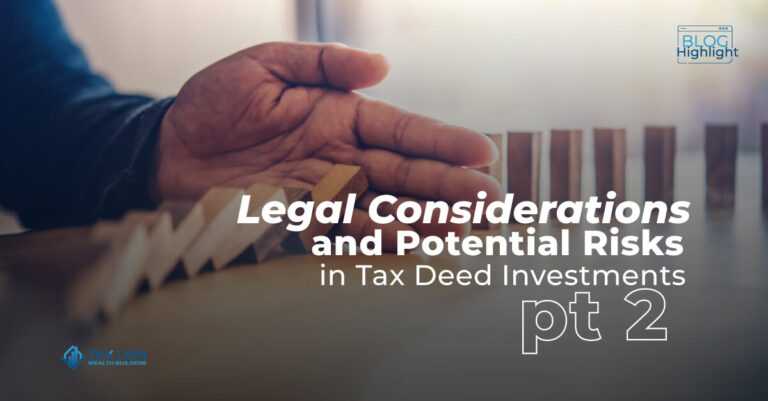Overcoming Setbacks in Tax Lien Investing
When it comes to tax lien investing, knowing that every investment is not a guaranteed win is a lifesaver. It is a system that balances risks and rewards. It is crucial to know that setbacks are not the end of the road; they’re just part of the journey. The important thing is learning how to navigate them. The question then becomes, what do you do when a tax lien doesn’t pay off the way you expected?
It all starts with understanding the basics. At its core, tax lien investing involves buying a debt. They are incurred when a property owner refuses to pay their property taxes. The local government issues a tax lien, allowing investors like you to step in. You pay off the taxes on the property, and in return, the property owner now owes you the debt plus interest. Simple, right?
One of the key factors to consider when a tax lien does not pay off immediately is the property itself. Just because you have not seen a return yet does not mean all is lost. Sometimes, property owners take longer to come up with the funds to pay off their back taxes. Other times, life happens; they could be dealing with financial hardship, waiting on a loan, or trying to sell the property. Patience is a crucial element in tax lien investing. But while you are waiting, it is wise to keep an eye on the property’s value and the market. Suppose the property is in an area that is growing or improving. In that case, it might be worth holding onto the lien, knowing that even if it takes time, the eventual payoff could be greater than you initially anticipated.
Waiting on the property owner if the property’s value is promising sounds good, but what if the property is not in such a promising area? Maybe it is in a declining neighborhood, or you have discovered that the house has major issues like structural damage or unpaid utility bills. In such cases, you might want to reassess whether pursuing foreclosure or holding onto the lien is worth it. No one wants to end up with a property that will cost more in repairs and fees than it is worth. This is where cutting your losses becomes part of the strategy. Sometimes, the smartest move is to walk away before sinking more time and money into a situation that will turn around.
Another important factor is understanding the legal landscape. Each state or county has different redemption periods and foreclosure processes. If your lien is in a state where the redemption period is long, it may seem like you are stuck. However, it is important to remember that these timelines are built into the investment. Understanding the local laws and regulations before you even purchase a lien can save you a lot of stress down the road. It is all part of managing expectations and preparing for potential delays.
What about when the lien is redeemed, but the interest rate or fees do not quite match what you hoped for? This can happen in highly competitive markets where bidders drive down interest rates at auctions. Or in cases where the property owner redeems earlier than expected, leaving you with less interest than planned. You may feel disappointed, but it is all part of the tax lien investing game. What to do? Diversification. With any investment portfolio, spreading your risk across multiple liens in different areas can help balance out those smaller returns with bigger wins. Do not put all your eggs in one basket or, in this case, do not put all your cash into one tax lien, expecting it to be your golden ticket.
Other times, the setback is about something other than the property or the lien itself. It could be your expectations. Tax lien investing requires a long-term mindset. If you are hoping for quick profits, you might find yourself disappointed. But if you go into this knowing that some liens will take time, you will be better equipped to weather the ups and downs. Patience and persistence are your best tools. Being an investor is not all your role entails; you are a strategist and, at times, a detective piecing together the puzzle of property values, legal processes, and market conditions.
But let’s not overlook an important reality: sometimes, a tax lien just doesn’t work out. You might face a loss, through an unwise foreclosure or a lien that never redeems. In those moments, it is easy to feel discouraged. But even the most successful investors have faced setbacks. The difference between those who succeed and those who give up is how they respond to those setbacks.
This brings us to one of the most valuable lessons in tax lien investing: every failure is an opportunity to learn. You could have missed a red flag in the property’s history or overlooked an issue with the local market. Maybe you didn’t fully understand the redemption period or didn’t factor in all the costs associated with foreclosing on a property. Whatever the reason, take it as a learning experience. The more you invest, the better you will get at identifying which liens are worth your time and which are not.
At the end of the day, tax lien investing is a journey filled with twists and turns. Setbacks are just part of the ride. Whether it’s waiting longer than expected for a lien to redeem or dealing with a less-than-ideal property. Or managing the legal hurdles, it all comes down to being adaptable, informed, and resilient. With the right mindset and a willingness to learn from every experience, you can turn those setbacks into stepping stones toward greater success in the future.
So, the next time a tax lien doesn’t pay off as you hoped, don’t panic. Step back, reassess the situation, and remember that every challenge is an opportunity to refine your strategy. With patience and persistence, you’ll find that even the setbacks can lead you closer to your ultimate goal: financial growth through smart, calculated investments.
This blog is for informational purposes only and is not financial or investment advice. Real estate investing carries risks, and individual results may vary. Consult your coach or financial advisor before making investment decisions. The authors and distributors of this material are not liable for any losses or damages that may occur as a result of relying on this information.







